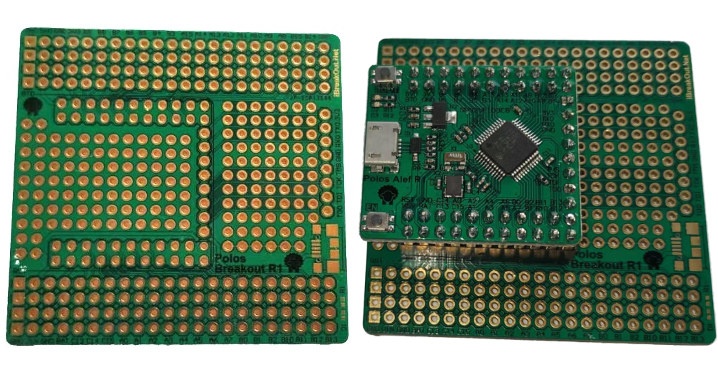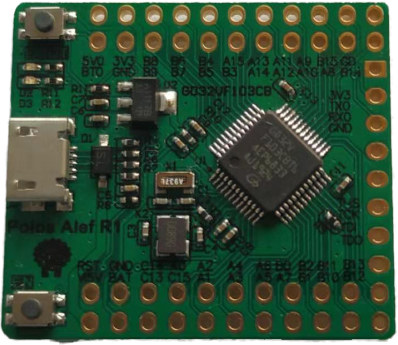We first found out about GigaDevice GD32V 32-bit RISC-V MCU last summer, as an update/alternative to the earlier STM32 compatible GD32 Arm Cortex-M3 microcontroller from the company with higher performance and lower power consumption, while keeping the price identical.
The first low-cost GD32V development board we covered was Longan Nano going for $5 with an OLED display and an acrylic case. If you don’t need either or want to access all pins from the 48-pin MCU, you can now order an even cheaper GD32V RISC-V MCU board with Polos GD32V Alef going for $2.99 on Analoglamb website.
Polos GD32V Alef board specifications:
- MCU – Gigadevice GD32VF103CBT6 32-bit RISC-V (rv32imac) microcontroller @ 108 MHz with 128KB Flash, 32KB SRAM
- USB – 1x micro USB OTG port for power and programming
- Expansion – 52 through holes (2.54mm pitch) exposing all pins from the MCU including 3x USART, 2x I2C, 3x SPI, 2x I2S, 2x CAN, 2x ADC (10 channel), 2x DAC, as well as power signals (5V, VBAT, GND…), and JTAG signals
- Timers – 4x general-purpose 16-bit timers, 2x basic 16-bit timers, 1 x advanced 16-bit timer, watchdog timer
- Crystals – 8MHz Crystal +32.768KHz Low-Speed RTC Crystal
- Misc – Boot and EN buttons
- Power Supply – 5V via micro USB port
- Dimensions – 33 x 33 mm (estimated)
The board uses the same GD32VF103CBT6 as on Sipeed Longan board, exposes more I/Os, but also lacks a MicroSD card socket and connector for SPI LCD display. You could always connect your own SPI display with some soldering though.

There are two main options for software development:
- C/C++ development with Nuclei Studio based on Eclipse IDE, and developed by Gigadevices allowing UART, DFU (USB) and JTAG firmware flashing.
- Arduino using Longduino developed by Sipeed for their Longan Nano board.
AnalogLamb also has a Github repo for Polos GD32V Alef board but it’s empty at the time of writing.

Jean-Luc started CNX Software in 2010 as a part-time endeavor, before quitting his job as a software engineering manager, and starting to write daily news, and reviews full time later in 2011.
Support CNX Software! Donate via cryptocurrencies, become a Patron on Patreon, or purchase goods on Amazon or Aliexpress





